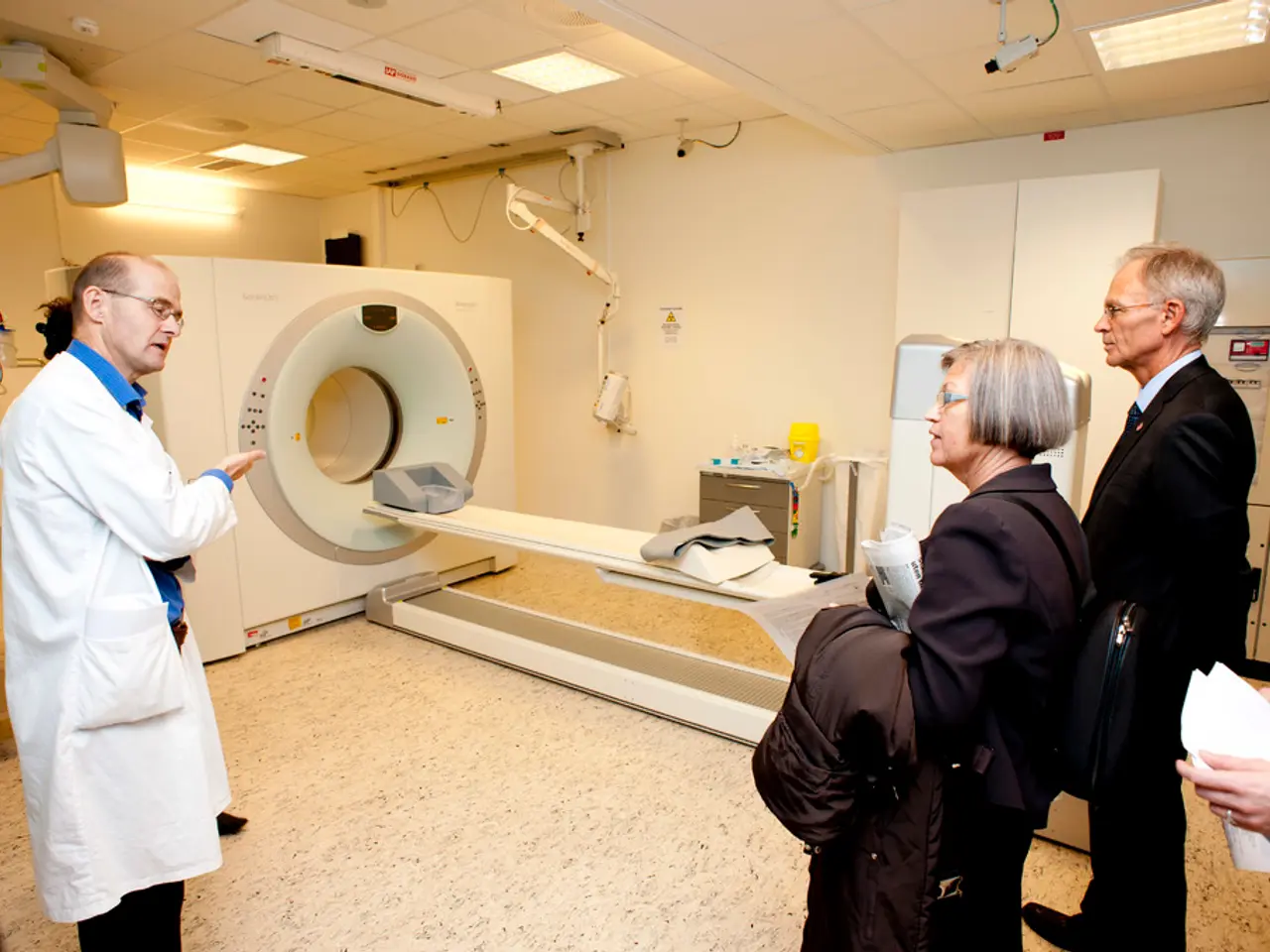Mental wellness: Adopting Mediterranean diet and staying active potentially offers protective benefits
Researchers are examining the potential benefits of a combined Mediterranean diet and walking regimen in reducing the risk of dementia and cognitive decline. The study, entitled "MedWalk intervention," is a collaboration between researchers from Australia, New Zealand, and the United Kingdom.
The MedWalk intervention involves participants adhering to a Mediterranean diet rich in fruits, vegetables, whole grains, nuts, olive oil, and lean protein, along with a structured walking program tailored to their individual fitness levels. The primary outcome of interest is a 12-month change in visual memory and learning for participants.
The study, initially designed to assess cognitive function over a 2-year period, has been modified due to the COVID-19 pandemic, with the follow-up period reduced to one year. Recruitment of participants has expanded to include individuals from independent living retirement communities, as well as the wider community.
The authors of the study are hopeful that the modified design will still produce strong findings. The data-collection period is set to be completed by the end of 2023.
Preliminary results suggest that the MedWalk intervention may offer improved cognitive function and a slower rate of cognitive decline compared to control groups. This research adds to growing evidence that a Mediterranean diet, rich in antioxidants and omega-3 fatty acids, may contribute to brain health, while regular walking is associated with enhanced vascular health and neuroplasticity.
Certified nutritionist Conner Middelmann emphasized that while studies suggest a link between the Mediterranean diet and lower risks of dementia, it is essential to consider numerous factors that influence dementia risk, including genetics, lifestyle, and overall health. Maintaining a healthy diet, including the Mediterranean diet, is considered one aspect of a comprehensive approach to brain health and dementia prevention.
Walking regularly has also been linked to slower cognitive decline, with one study finding that taking 10,000 steps a day lowered the risk of dementia by 50%. Brain health coach Ryan Glatt explained that walking may improve brain health by increasing blood flow, stimulating brain activity, reducing stress, and incorporating social and natural elements that may have additional benefits.
Longer-term data and larger sample sizes are needed to confirm the sustained cognitive benefits and reduction in dementia incidence associated with the MedWalk intervention. However, the preliminary findings support the combined Mediterranean diet and walking as a potentially promising, holistic lifestyle strategy for preventing or delaying cognitive decline and dementia.
- Adhering to a Mediterranean diet, rich in brain-healthy foods like fruits, vegetables, whole grains, and lean proteins, is considered an essential aspect of a comprehensive approach to mental health and dementia prevention as suggested by certified nutritionist Conner Middelmann.
- The structured walking program tailored to individual fitness levels within the MedWalk intervention may offer improved cognitive function, as research indicates that walking regularly is linked to a slower rate of cognitive decline and reduced risk of dementia by up to 50%.
- Researchers from Australia, New Zealand, and the United Kingdom are collaborating in the MedWalk intervention study, examining the potential benefits of a combined Mediterranean diet and walking regimen in reducing the risk of dementia and cognitive decline.
- The primary outcome of interest in the MedWalk intervention is a 12-month change in visual memory and learning for participants, with the expanded recruitment process covering individuals from independent living retirement communities and the wider community.
- The authors of the MedWalk intervention study hope that the modified 1-year follow-up study will still produce strong findings revealing a potential reduction in cognitive decline and dementia risk.
- The MedWalk intervention, which focuses on a Mediterranean diet rich in antioxidants and omega-3 fatty acids, along with regular walking, adds to the growing body of evidence suggesting that these lifestyle factors may contribute to brain health, neuroplasticity, and dementia prevention.







